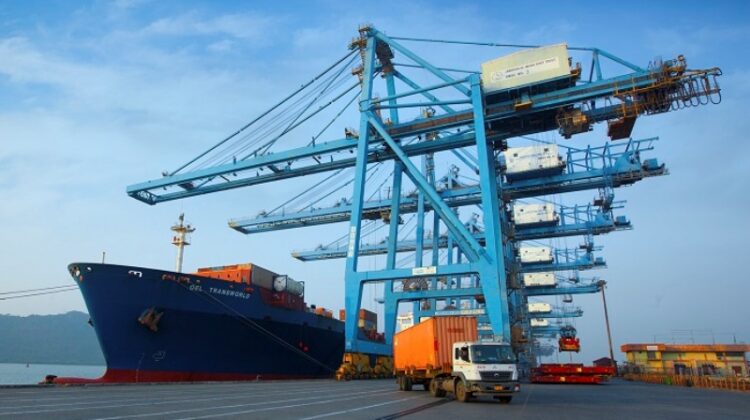
JNPT readies global tender to privatise port-run container terminal
MUMBAI : Jawaharlal Nehru Port Trust (JNPT), India’s biggest state-run container port, will issue a global tender in the next few days to privatise the container terminal run by the port authority after it was approved by the Ministry of Ports, Shipping And Waterways last week.
Move in keeping with new law requiring transition to ‘authority’ model of governance.
The project is among the seven operational cargo berths run by government-owned major ports that will be privatised this fiscal through the public-private-partnership (PPP) route, as the ports move from a ‘trustee’ set-up to an ‘authority’ model of governance under a new law passed by Parliament in February.
The successful bidder can set rates at the terminal based on market forces, as envisaged by the new law. JNPT will only set the reference tariff for bidding purpose and the entity quoting the highest royalty per twenty-foot equivalent unit (TEU) will win the 30-year deal.
Container volumes at JNPT dips 7 per cent in FY21
The privatisation plan was cleared by the port’s board of trustees last December. “It was approved by the standing finance committee (SFC) in the ministry and signed off by the Minister last week,” a ministry source said.
“The global tender will be issued soon,” a JNPT official added.
Interested parties
Adani Ports and Special Economic Zone Ltd (APSEZ), India’s biggest private port operator, the Dubai government-owned global port operator DP World Ltd and APM Terminals Management BV are expected to participate in the tender.
DP World already runs two terminals in JNPT while APM Terminals operates one. For APSEZ, this could be an opportunity to gain a presence in JNPT after it lost out to Singapore’s PSA International in a tender for a terminal earlier.
SBI Caps to be transaction advisor for privatisation of JNPT’s container terminal
The project is estimated to cost ₹863.31 crore, including berth upgradation, and replacement and/or deployment of other equipment.
Tumbling volumes
JN Port Container Terminal (JNPCT), one of the five container terminals operating at JNPT, handled 544,027 TEUs in FY21 from 718,863 TEUs in FY20. The terminal can handle 1.35 million TEUs a year.
JNPCT is the only container handling facility operated by a government-owned port authority across the 12 state-owned major ports in India.
In four years, JNPCT’s volumes have tumbled by 64.44 per cent from 1.53 million TEUs in FY17 to 1.48 million TEUs in FY18, 1.04 million TEUs in FY19, 718,863 TEUs in FY20 and 544,027 TEUs in FY21.
Its capacity utilisation has declined from over 100 per cent in FY17 to below 50 per cent mainly due to the opening of two new private terminals at the port, both having quay cranes with a rail span of 30.5 metres, lifting capacity of 70 tonnes and outreach of 22 rows across.
‘Landlord model’
Privatisation of state-run cargo berths has become necessary as the ‘port authority’ formed for each of the 11 ports under the Major Port Authorities Act 2021 will play the role of a landlord — a model widely followed globally wherein the publicly governed port authority acts as a regulatory body and as landlord, while private firms carry out port operations, mainly cargo handling activities.
The landlord port, in return, gets a share of the revenue from the private entity.
Source : The Hindu Business Line

